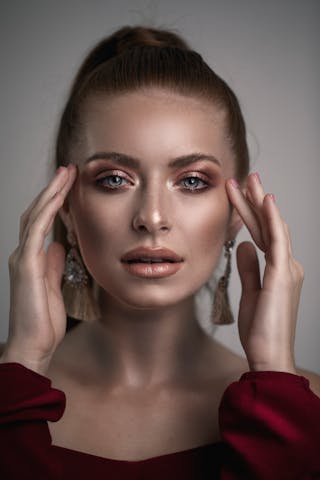Is Perfect MatchS Bisexual Representation Fetishizing?
Hey there! Have you ever wondered about the portrayal of bisexuality in perfect match scenarios? It's a hot topic in the LGBTQ+ community, with some questioning whether it's a genuine reflection of diversity or simply a fetishization of bisexuality. It's a complex issue that's definitely worth exploring. If you're interested in delving deeper into the world of LGBTQ+ representation, check out this website for some thought-provoking discussions.
In recent years, there has been a growing push for more diverse and inclusive representation in media, including the portrayal of bisexual characters. While this is undoubtedly a positive step forward, there is a growing concern that some representations of bisexuality may be fetishizing and ultimately harmful. One such example is the popular dating show "Perfect MatchS," which has been criticized for its portrayal of bisexual contestants. In this article, we will explore the issue of fetishizing bisexual representation and its impact on the bisexual community.
Unlock the little kink within and explore the world of BDSM with an open mind and a willingness to try something new.
The Problem with Fetishizing Bisexuality
Fetishizing bisexuality refers to the act of reducing a person's sexual orientation to a mere object of sexual desire, rather than acknowledging their full humanity and complexity. This can take many forms, from objectifying bisexual individuals as "exotic" or "wild" to perpetuating harmful stereotypes about their behavior and desires. When bisexual representation in media is fetishized, it can perpetuate harmful myths and misconceptions about bisexuality, ultimately contributing to the marginalization and erasure of bisexual individuals.
Check out the latest blowmotion reviews to see if this product is right for you.
The Case of "Perfect MatchS"
"Perfect MatchS" is a dating show that has come under fire for its portrayal of bisexual contestants. Critics argue that the show perpetuates harmful stereotypes about bisexuality, portraying bisexual individuals as promiscuous, indecisive, and untrustworthy. This not only reinforces harmful myths about bisexuality but also contributes to the erasure of bisexual identity, as it fails to recognize bisexuality as a legitimate and valid sexual orientation.
The Impact on the Bisexual Community
The fetishization of bisexual representation in media has real-world consequences for the bisexual community. It can contribute to feelings of alienation and shame among bisexual individuals, as they may feel that their identity is reduced to a mere sexual fantasy rather than being respected and valued for who they are. Additionally, fetishizing bisexuality can lead to the perpetuation of harmful stereotypes and misconceptions, ultimately contributing to the marginalization and discrimination of bisexual individuals.
Moving Towards Authentic Representation
It is crucial for media creators to move towards more authentic and respectful representations of bisexuality. This means portraying bisexual characters as fully realized individuals with their own unique experiences, desires, and struggles, rather than reducing them to mere objects of sexual desire. It also means challenging harmful stereotypes and misconceptions about bisexuality and highlighting the diverse and multifaceted experiences of bisexual individuals.
How to Support Authentic Representation
As consumers of media, we can play a role in supporting authentic representation of bisexuality. This can include advocating for more diverse and inclusive storytelling, supporting media that portrays bisexuality in a respectful and nuanced manner, and challenging harmful stereotypes and misconceptions when we encounter them. Additionally, it is important to listen to and uplift the voices of bisexual individuals, allowing them to tell their own stories and experiences on their own terms.
In conclusion, the fetishization of bisexual representation in media, such as the portrayal of bisexual contestants on "Perfect MatchS," is a harmful phenomenon that contributes to the marginalization and erasure of bisexual individuals. It is crucial for media creators to move towards more authentic and respectful representations of bisexuality, and for consumers to support and advocate for such portrayals. By doing so, we can work towards a more inclusive and affirming media landscape for bisexual individuals.
- https://datingguide.getweps.com/posts/ditching-the-dating-apps-can-we-still-find-love-irl/
- https://singles.themountaintopplay.com/posts/im-cheating-on-my-husband-because-he-refuses-to-go-down-on-me/
- https://sexting.timebombrecordings.com/posts/skoliosexual-definition-and-meaning/
- https://matchmaker.getweps.com/posts/kivin-method-what-is-the-kivin-method-oral-sex-trick/
- https://personals-website.fu-direct.net/posts/
- https://matchmaker-website.themountaintopplay.com/posts/best-sex-toy-advent-calendars-for-2023/
- https://find-singles.ua-sex.com/posts/the-rise-of-having-sex-for-the-story/
- https://dating-chat-room.themountaintopplay.com/posts/sexpositive-5-women-and-nonbinary-people-on-what-it-means/
- https://matchmaker-website.themountaintopplay.com/posts/slow-and-sensual-sex-positions-from-kama-sutra/
- https://find-a-girlfriend.thehottieandthenottie.com/posts/how-to-get-over-someone-how-to-get-over-a-breakup/
- https://hookupguide.getweps.com/posts/lesbian-and-bisexual-women-share-their-dating-insecurities/
- https://location-dating.timebombrecordings.com/posts/keep-dating-the-wrong-people/
- https://online-sex.themountaintopplay.com/posts/dating-like-a-new-yorker/
- https://location-dating.ua-sex.com/posts/love-in-the-time-of-covid19-virtual-dating-challenges-and-solutions/
